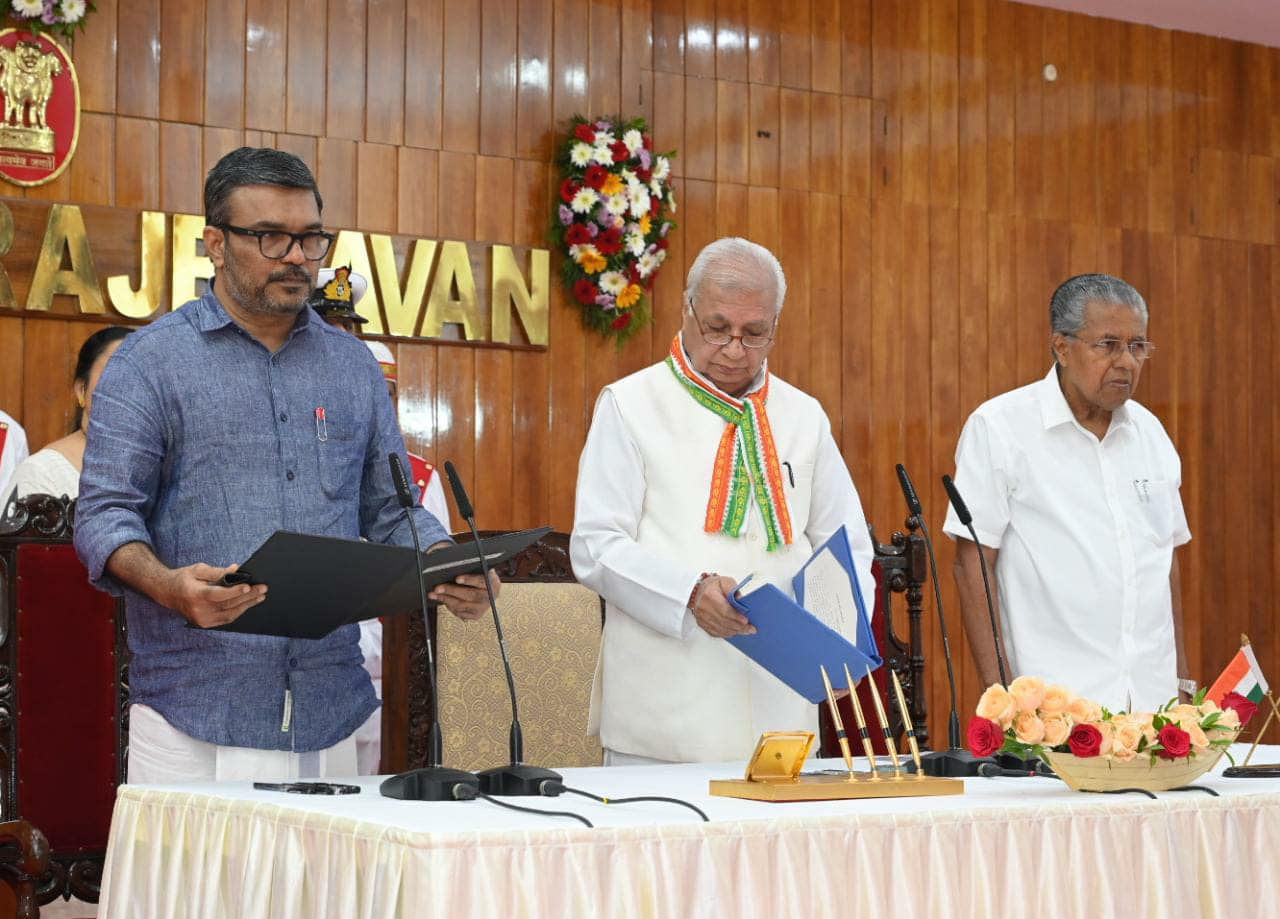Governor Khan, who is sitting on a bill curbing his powers, is going ahead with the process of appointing VC in universities.

File photo of Governor Arif Mohammed Khan with Chief Minister Pinarayi Vijayan at the Kerala Raj Bhavan (Supplied)
Kerala Governor Arif Mohammad Khan was all restraint and decorum as he read out the one-hour-fourteen-minute policy address of the Pinarayi Vijayan Government in the Assembly on Monday, 23 January.
Within hours, however, it became apparent that it was all a facade.
After the incident-free opening of the Budget Session, which was read as some kind of a truce between the government and the Governor, it became clear that Khan was powering ahead with his search for vice-chancellors of three major state universities — ignoring the Higher Education Department.
By doing so, the Governor has opened a new front in his ongoing war with the government, and has indicated clearly that he, as Chancellor of all state universities, intended to have a hands-on approach in matters related to Kerala’s higher education sector.
The process of appointing vice-chancellors to Thunchath Ezhuthachan Malayalam University, the Mahatma Gandhi (MG) University, and the Cochin University of Science and Technology (CUSAT) is now underway.

Kerala Governor Arif Mohammad Khan calling on Prime Minister Narendra Modi in New Delhi.
(File photo)
The Governor had requested, as per existing procedures, the University Grants Commission (UGC) to name its representatives to the three-member search committees to be constituted by him to shortlist vice-chancellors.
The UGC has nominated Prof Battu Satyanarayana, vice-chancellor of Karnataka Central University, to the search committee for Malayalam University. KRS Sambasiva Rao, former vice-chancellor of Mizoram University, to the committee for MG University, and Prof E Suresh Kumar, vice-chancellor of the English and Foreign Languages University in Hyderabad, to the committee for CUSAT.
He will now name his representatives to these committees and has also reached out to Malayalam University, asking it to nominate its representative to the committee.
In seeking to set up three-member search committees under the existing norms, Khan has completely ignored a letter written last week by High Education Minister R Bindu asking him to name his nominee to a five-member search panel to select a vice-chancellor for Malayalam University.
The Higher Education Department is setting up the five-member committee on the basis of the University Laws (Amendment) Bill, 2022, which the Governor has not yet signed.
The Governor is sitting on the amended bill, which hugely curbs his powers, and has hinted that it would be referred to the President.
Under the amended bill, three of the committees members will be state government representatives, giving it the majority and the ability to out-vote the nominees of the Governor and UGC.
The letter from the Higher Education Department said the committee would comprise representatives of the UGC, the Higher Education Council, the Higher Education Department, the University Syndicate, and, of course, the Governor’s nominee.
Raj Bhavan sources argue that the department has no mandate to seek Governor’s nominee under a bill which the Governor has not approved — that is, a law that does not exist. Under the existing law, they say, Governor is the appointing authority, and he can constitute the search committee comprising three members.
And he says it is his responsibility to constitute the three-member search committee as per the prevailing law.
The Governor has informed UGC that he is empowered, as the ex-officio Chancellor of all the universities in Kerala, to form the search committees to select any vice-chancellor in the state, and the UGC has concurred.
With Khan having made his intentions clear, the ball is now in the government’s court.

Jul 10, 2024

Jun 26, 2024

Jun 26, 2024

Jun 26, 2024

Jun 25, 2024

Jun 24, 2024